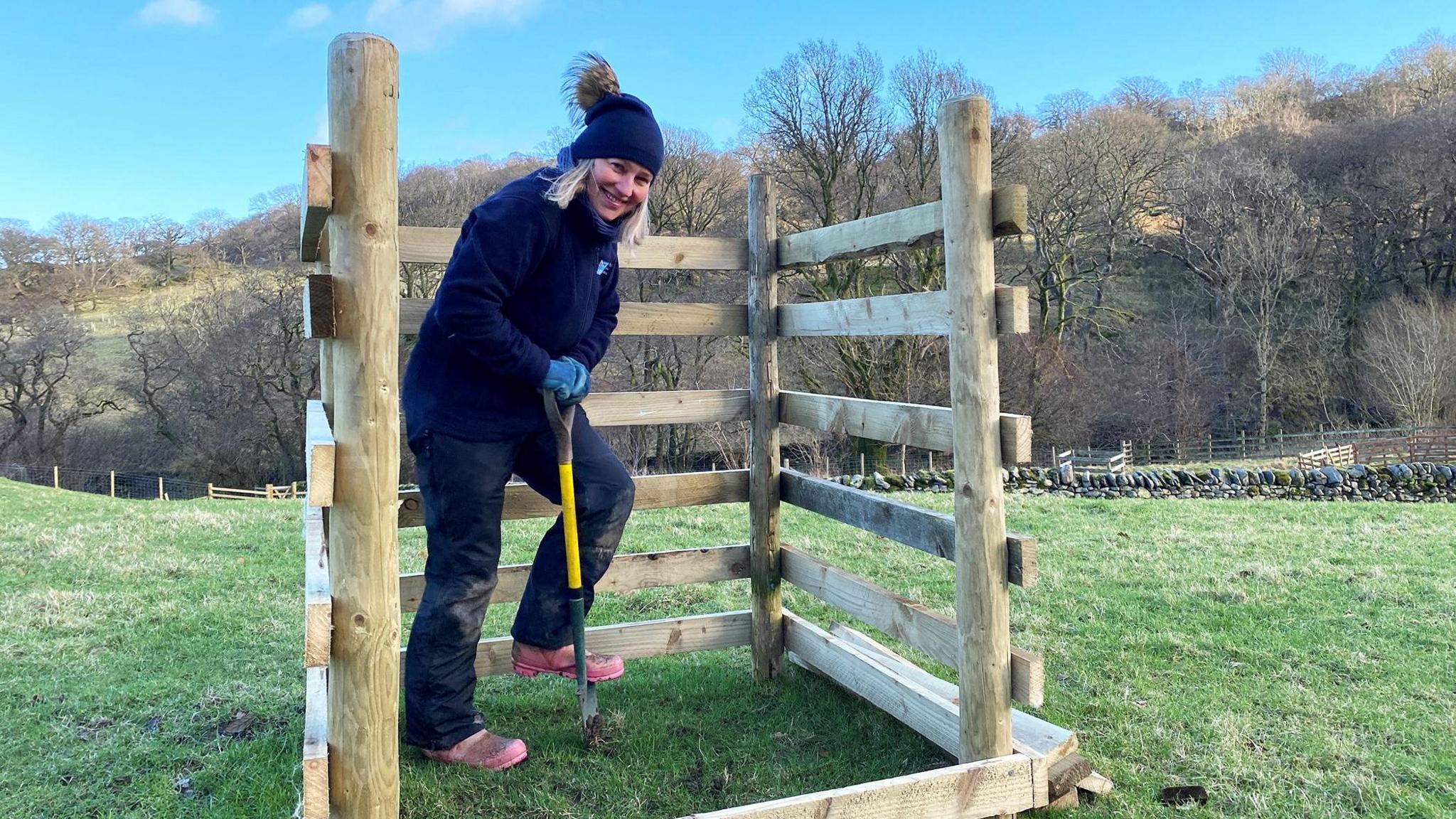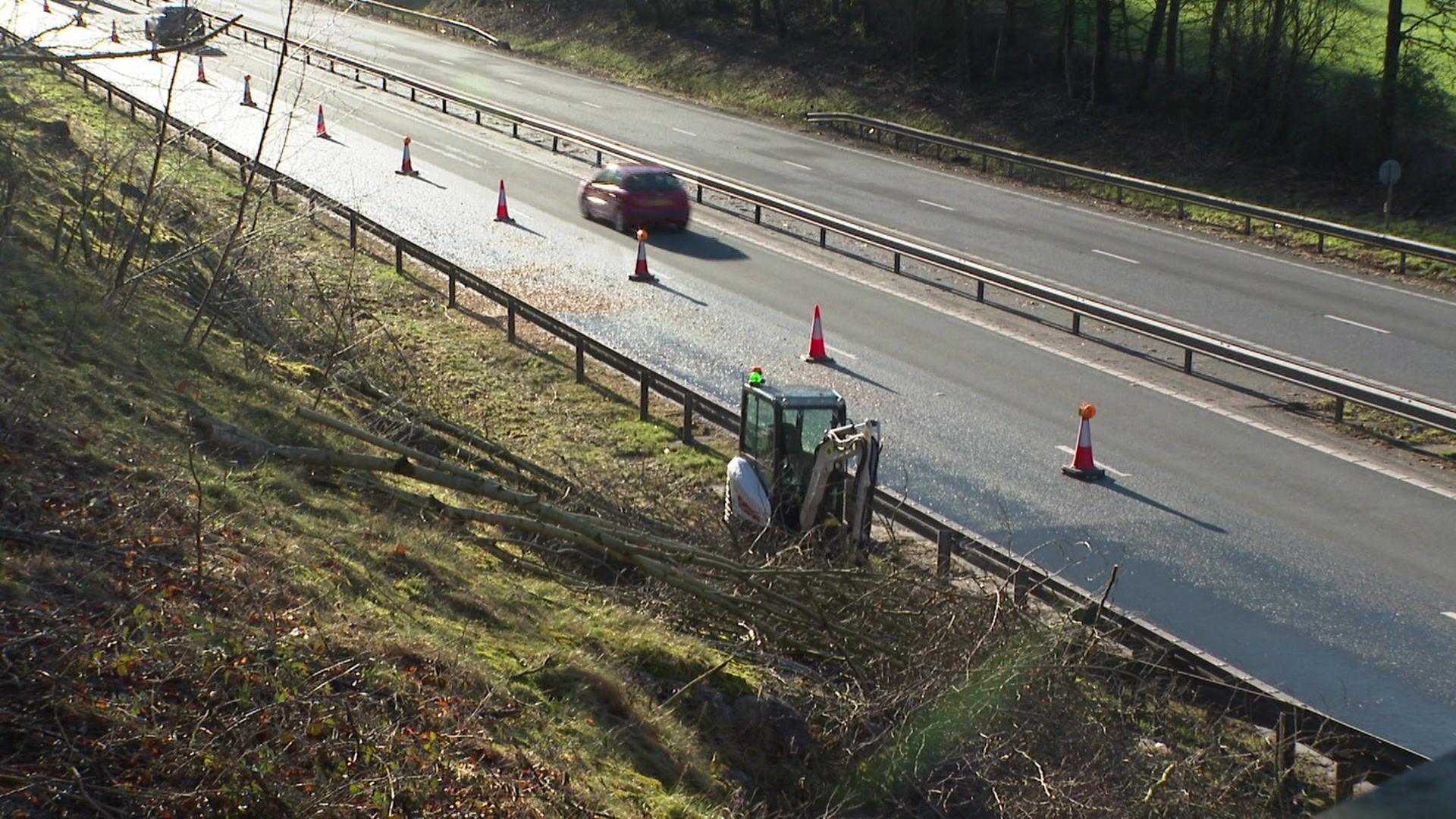Woodland project celebrates planting 200th tree

The RSPB's Bea Normington is part of a project which aims to restore native trees to the Lake District
- Published
The team behind a project to restore native woodland to the Lake District has celebrated planting its 200th tree.
For the last two years the RSPB has been planting at Celebration Wood, a 3000-acre (12-sq-km) site once home to dozens of varieties of native trees.
The freshly-planted trees have included species such as sessile oak, alder, willow and aspen, along with the latest tree: a bird cherry.
The RSPB's Bea Normington said the project was an "ideal opportunity" to "support the recovery" of the landscape.
It is now hoped the bird cherry tree’s spring flowers will provide an early source of nectar and pollen for bees, and that later its cherries will be eaten by birds and mammals.
‘Every tree has a story’
Celebration Wood is just one of a number of conservation projects run since 2011 by the RSPB, working in partnership with landowner United Utilities, at Wild Haweswater, near Bampton.
Ms Normington said: “When we started this scheme two years ago, we weren’t sure how the public would respond, but it has been incredible.
“Every tree in Celebration Wood has a story - whether planted to celebrate a special occasion, anniversary, birthday, wedding, or in memory of a loved ones’ life.”
A lot of the woodland in the Lake District, particularly in the uplands, has been lost to over-grazing, she said.
Ms Normington added: “Celebration Wood is an ideal opportunity for people who have a love of this beautiful part of Cumbria to support the recovery of this landscape, help us grow Haweswater’s beautiful woodland, improve the quality of drinking water in Haweswater reservoir and create a place for iconic wildlife such as red squirrels and woodpeckers to thrive."
200,000 trees
Wild Haweswater is home to the largest native tree and plant nursery in the Lake District.
Around 30,000 plants are being grown, of about 50 different native species, and around 200,000 native trees have been planted across the whole site at Haweswater since 2011.
Andrew Wright, woodland officer at United Utilities said: “We have worked with the RSPB to plant thousands more trees, alongside other important habitat work in the uplands, such as putting the bends back into Swindale Beck and blanket bog restoration."
He said the measures helped reduce the risk of flooding "by slowing the flow of water off the fells" and naturally purified drinking water.
Follow BBC Cumbria on X (formerly Twitter), external, Facebook, external and Instagram, external. Send your story ideas to northeastandcumbria@bbc.co.uk.
Related topics
More stories from BBC North East and Cumbria
- Published1 February 2024
